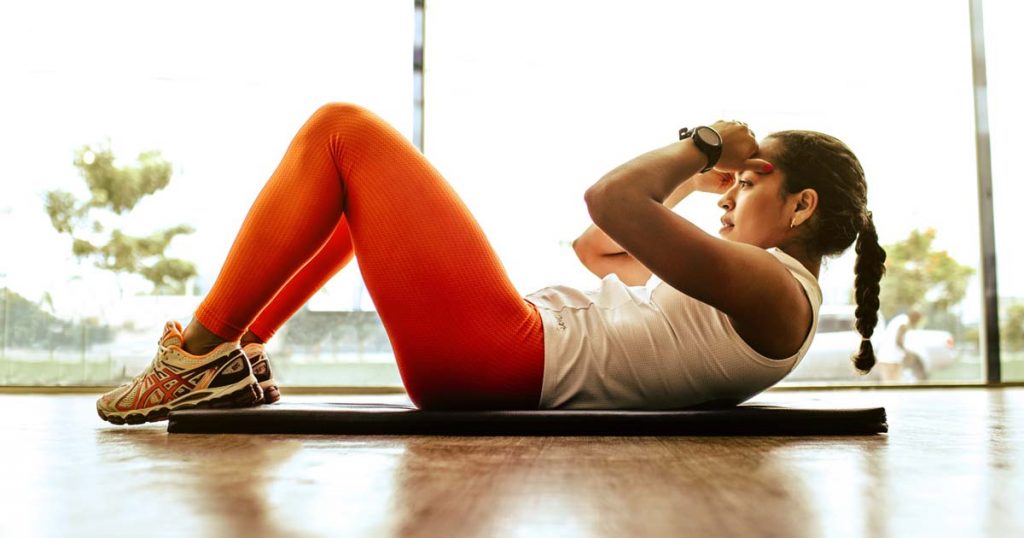The effects of exercise on good health have been documented for a long time. We all know that physical activity can help maintain a healthy weight and balance our moods. But exercise can greatly support our health and our immune system as well.
Medical professionals usually recommend regular exercise to maintain good health. You should also include a balanced diet of protein, fruits, vegetables and grains – If your doctor pointed out – the use of multi – vitamins, and nutritional supplements.

Maintaining a healthy lifestyle that includes exercising can boost immunity in several ways. In this article, we’ll review five ways exercise can support your immune system and overall health.
What does the immune system do?
In simple terms, a strong immune system; It leads to better defenses against infection.
The immune system is a complex network of cells and organs that help fight disease. The system recognizes harmful agents such as bacteria, viruses, chemicals, or toxins, and sometimes even our cells that may be dangerous or harmful to the body. The immune system reacts to those harmful antigens by mounting a reaction to defend itself – also called the immune response.
When an ineffective or weakened immune reaction escalates, problems such as infection and disease appear. Therefore, it is important to maintain a very healthy immune system. Vitamin C is a natural immune booster and can be found in leafy vegetables and citrus fruits like oranges and grapefruit, as well as in the form of supplements.
How much exercise is enough?
According to a study published in the Journal of Sports and Health Sciences, exercise benefits the immune system with moderate bouts of physical activity. Some studies indicate a transient negative effect on the immune system after intense and prolonged physical activity such as a marathon.
General exercise guidelines, known as physical activity guidelines, state that healthy adults should incorporate moderate-intensity aerobic physical activity and / or vigorous-intensity aerobic activity into their weekly routine. Moreover, it is important to include or increase activities that maintain or increase muscle strength and endurance in order to have greater positive effects. Incorporating a multivitamin into your diet can help boost the benefits you’ll reap from your regular exercise.
Please be aware that the amount of exercise can vary for each person. The types of exercise also differ according to the type of person and lifestyle. Therefore, you should consult your doctor before starting an exercise program.
Exercise helps strengthen the immune system in 5 ways
Helps slow down the effects of aging on the immune system
The effect of exercise on the immune system gives important results as the body ages. Some studies show that exercise effectively reduces the effect of aging on the immune system.
The aging process has many effects on the human body. One of these effects – a decrease in immune system function or an imbalance in its regulation – called immune swelling – indicates an aging-related deterioration of the immune system. Although it is a natural process, it can be countered or delayed by reshaping our lifestyle. Collagen supplements; It can help protect your joints and improve the quality of your skin as you work to build immune strength through exercise.
Recent research data supports that regular exercise can help regulate the immune system and delay the onset of immune swelling. Another effect of aging – the gradual increase in the pro-inflammatory state (also called “inflammatory aging”) – can lead to disease.
A study published in Aging Research Reviews found that regular exercise has a beneficial effect on immune system response cells, such as T cells, neutrophils and natural killer (NK) cells. It has shown an increasing ability to reproduction and activity of these cells in addition to the decrease in the number of T cells older and less active black seeds, which are also known as the seeds of cumin, which showed it is a dietary supplement effective natural killer cells and can work together with the exercise of the usual aerobic exercise to regulate the immune system And delay the onset of immune swelling.
Supports blood circulation and enhances immune monitoring
Moderate amounts of aerobic activities support a healthy heart and encourage healthy circulation. This boost in circulation moves important cells in the immune system such as T cells, cytokines, neutrophils, and others.
Increased mobilization of these cells enhances immune surveillance. The enhanced immune monitoring means the body is more alert and ready to fight infection. In other words, exercise facilitates the antioxidant and anti-inflammatory state.
This immune effect of intense exercise has several benefits – among them, an increase in the blood of lymphocytes, T cells and natural killer cells. These responsive cells move from the blood to the tissues in search of cells that are infected with viruses or bacteria or those that have mutated.
Just like a healthy diet, exercise can contribute to good overall health and thus a healthy immune system. It may contribute more directly by promoting good circulation – allowing cells of the immune system to move through the body freely and efficiently. Niacin, also known as vitamin B-3, can help support a healthy circulation system by improving blood flow and balancing your body.
Regular physical activity has an overall positive effect
A 2019 article published in the Journal of Sports and Health Sciences points to mounting evidence that moderate, regular physical activity has an overall anti-inflammatory effect. This effect is achieved through many different mechanisms that include improving the control of inflammatory signals, the release of certain proteins such as myokines and interleukins, and the improvement of oxygen.
The author of this study states that this effect may be more pronounced when combined with weight loss. The article also states that obesity and many chronic diseases involve a steady state of low-grade inflammation, oxidative stress, and immune impairment. Sports training supports a healthy immune response and reduces the oxidative stress present in these conditions. The effect of exercise involves a balanced level of antioxidant enzymes such as catalase, superoxide dismutase, and glutathione peroxidase.
Burns calories and maintains healthy body fats
As previously mentioned, obesity creates a chronic mild state of inflammation as evidenced by a balance of circulatory levels of inflammatory proteins and a decrease in anti-inflammatory proteins. This occurs in adults as well as teenagers and children. Several studies show the relationship between obesity and a weak immune system.
A study published by the University of Cambridge found that obesity, like other malnutrition conditions, is known to impair immune function by altering leukocyte counts as well as cellular immune responses.
Regular exercise burns calories and can reduce the amount of fatty tissue in the body, thus supporting immune system protection functions.
An active lifestyle facilitates better immune protection after vaccinations
Several studies reveal that people who maintain a regular exercise routine and active lifestyles have a better response to vaccines. Vaccinations represent a true test of the immune system. A good immune system produces an appropriate response to vaccines, which creates strong immunity against pathogens such as viruses and bacteria.
One study showed an improvement in the antibody response to influenza vaccination in the elderly. Research has proven that exercise facilitates long-term immunity after vaccinations – and is especially important for older adults whose immune response to vaccines may be reduced due to the effects of aging.
Conclusion
Moderate aerobic exercise combined with strength training can help strengthen the immune system. Regular exercise, a healthy diet, and stress management techniques such as meditation and aromatherapy can make a difference in maintaining good health.




![The Top & Most Popular Seafood Bucket Restaurants in Dubai for you [Never Miss]](https://uae24x7.com/wp-content/uploads/2020/09/8-seafood-in-a-bucket-scaled-e1600739237403.jpg)
![Procedures for Renewing the Driving License in Abu Dhabi [3 Simple Steps]](https://uae24x7.com/wp-content/uploads/2020/07/Capture-9-e1595666454466.jpg)





